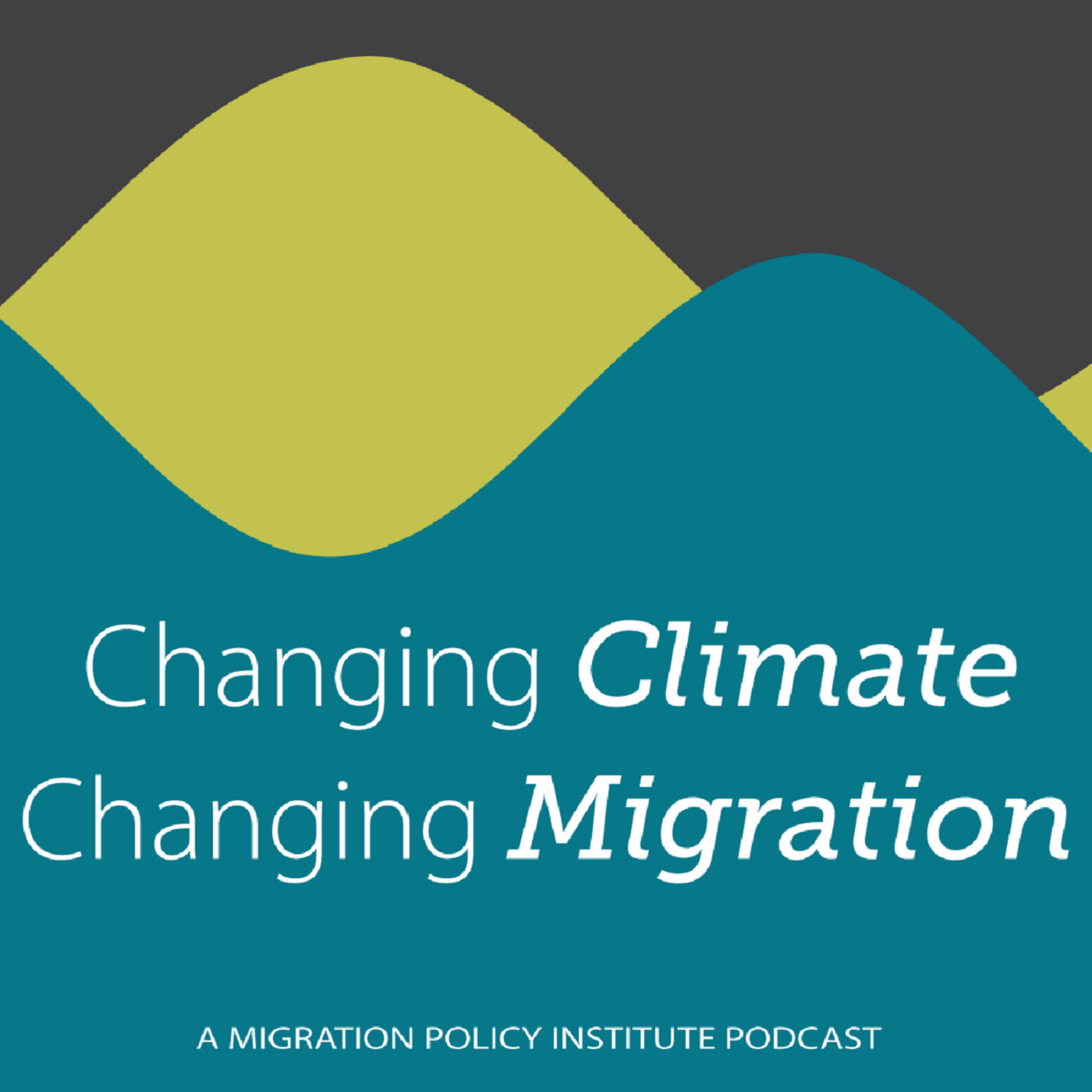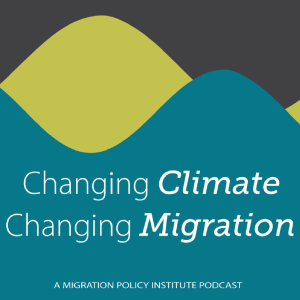

How are climate change and environmental degradation affecting human migration across borders and within countries? We explore with top experts in this Migration Policy Institute podcast.
How are climate change and environmental degradation affecting human migration across borders and within countries? We explore with top experts in this Migration Policy Institute podcast.
Episodes

Thursday Dec 15, 2022
A Century of Climate Migration Upheaval? An Audacious Prediction for the Future
Thursday Dec 15, 2022
Thursday Dec 15, 2022
Is the world facing a chaotic century of mass migration spurred by climate change? As the planet’s temperature warms, award-winning environmental journalist Gaia Vince thinks so. In her book, Nomad Century: How Climate Migration Will Reshape Our World, she contemplates a future in which hundreds of millions of people move from one part of the globe to another in a planned and deliberate migration. We discuss her bold solutions for managing what she terms a species emergency in this episode.

Thursday Nov 17, 2022
Climate Change in the World’s Fastest Growing Economy
Thursday Nov 17, 2022
Thursday Nov 17, 2022
Guyana is a small country in South America that undoubtedly will be greatly transformed by the recent discovery of massive offshore oil reserves. Extremely vulnerable to climate change, with predictions that its capital will be underwater by 2030, Guyana has been known as a green champion, trapping more carbon dioxide than emits. How will the world’s fastest growing economy manage environmental change, particularly with economic growth and proximity to troubled Venezuela likely to drive significant immigration? We discuss these dynamics with Camila Idrovo and Jermaine Grant from the Pan American Development Foundation.

Tuesday Mar 29, 2022
Are Climate Migrants Treated Differently than Other Migrants?
Tuesday Mar 29, 2022
Tuesday Mar 29, 2022
Do host communities respond differently to people migrating because of environmental impacts compared to refugees fleeing war or migrants seeking work? Research suggests the answer is yes. Multiple factors affect relations between communities and new arrivals, and migrants’ perceived levels of deservingness can be influenced by the reasons why they move. In this episode, we speak with Sabrina Arias and Christopher Blair about their study of responses to climate migrants in the United States and Germany.

Monday Feb 07, 2022
A Note of Caution about Exaggerating the Climate-Migration Link
Monday Feb 07, 2022
Monday Feb 07, 2022
Concerns that large numbers of people will be displaced by climate change and head to wealthy countries in North America and Europe are often misplaced, according to migration scholar Hein de Haas. These types of narratives can tap into anti-immigrant sentiments, allow governments to avoid responsibility for their own failures, and may overlook the large numbers of people forced to remain in place amid environmental disaster, he argues in this episode.

Friday Dec 10, 2021
When Climate Change Comes to Refugee Settings
Friday Dec 10, 2021
Friday Dec 10, 2021
Environmental disasters can force people out of their homes and communities, complicating responses to ongoing humanitarian protection efforts. As a result, many humanitarian organizations have started paying attention to the impacts of climate change for multiple aspects of their refugee protection work. For this episode, we speak with Joan Rosenhauer, the executive director of Jesuit Refugee Service/USA, about how natural disasters and other environmental harms affect her organization’s work and its faith-based mission.

Wednesday Oct 27, 2021
Climate Change and Environmental Migration: View from the IOM
Wednesday Oct 27, 2021
Wednesday Oct 27, 2021
The UN migration agency, the International Organization for Migration (IOM), in 2015 created a special division responsible for migration-related issues involving the environment and climate change. The division just got a new leader and is looking to embark on a new agenda. This episode of the podcast features a discussion with new division head Manuel Marques Pereira, who talks about his office’s role and priorities in dealing with migration shaped by climatic events.

Monday Oct 11, 2021
Impacts of Extreme Heat: Global Warming and Migration
Monday Oct 11, 2021
Monday Oct 11, 2021
Global warming and extreme heat are behind many of the phenomena linked to climate change. Hotter weather also has an impact on migration and on migrants, particularly in destinations such as the Middle East and parts of the United States. In recent years, there has been more attention paid to cases of migrant workers dying from the heat. In this episode, we speak with Tord Kjellstrom, a physician and researcher who has closely studied the relationship between extreme heat and population health, about what extreme heat means for migrants.

Thursday Sep 30, 2021
Retreating from Climate Disaster in the United States
Thursday Sep 30, 2021
Thursday Sep 30, 2021
In Western countries, a common narrative has developed that only poor or developing nations will have to confront human displacement caused by climate change. But communities in the United States and elsewhere have repeatedly moved because of environmental disasters such as flooding. This episode features a discussion on the U.S. government’s responses to internal displacement, with Kavi Chintam and Chris Jackson, co-authors of an Issues in Science and Technology article analyzing the approach to managed retreat.

Monday Apr 19, 2021
No “Climate Refugees,” But Still a Role for the UN Refugee Agency
Monday Apr 19, 2021
Monday Apr 19, 2021
Technically, people forced to move because of climate disasters are not considered “refugees.” But the UN refugee agency, the UN High Commissioner for Refugees, still takes climate issues into account, and since 2020 Andrew Harper has been its special advisor on climate action. We talked with Harper about his agency’s role in responding to climate issues, which regions of the world are most likely to be affected by climate impacts, and why climate is a “vulnerability multiplier” for refugees.

Friday Apr 02, 2021
The Benefits of Climate Migration
Friday Apr 02, 2021
Friday Apr 02, 2021
Popular discussions usually frame climate change-induced migration negatively, often as a strategy of last resort. But migrating abroad can also be an effective way to build resilience against the impacts of climate change. This episode discusses how migration can bring social, economic, and other benefits to migrants and their communities, in conversation with University of Vienna human geographer Harald Sterly.